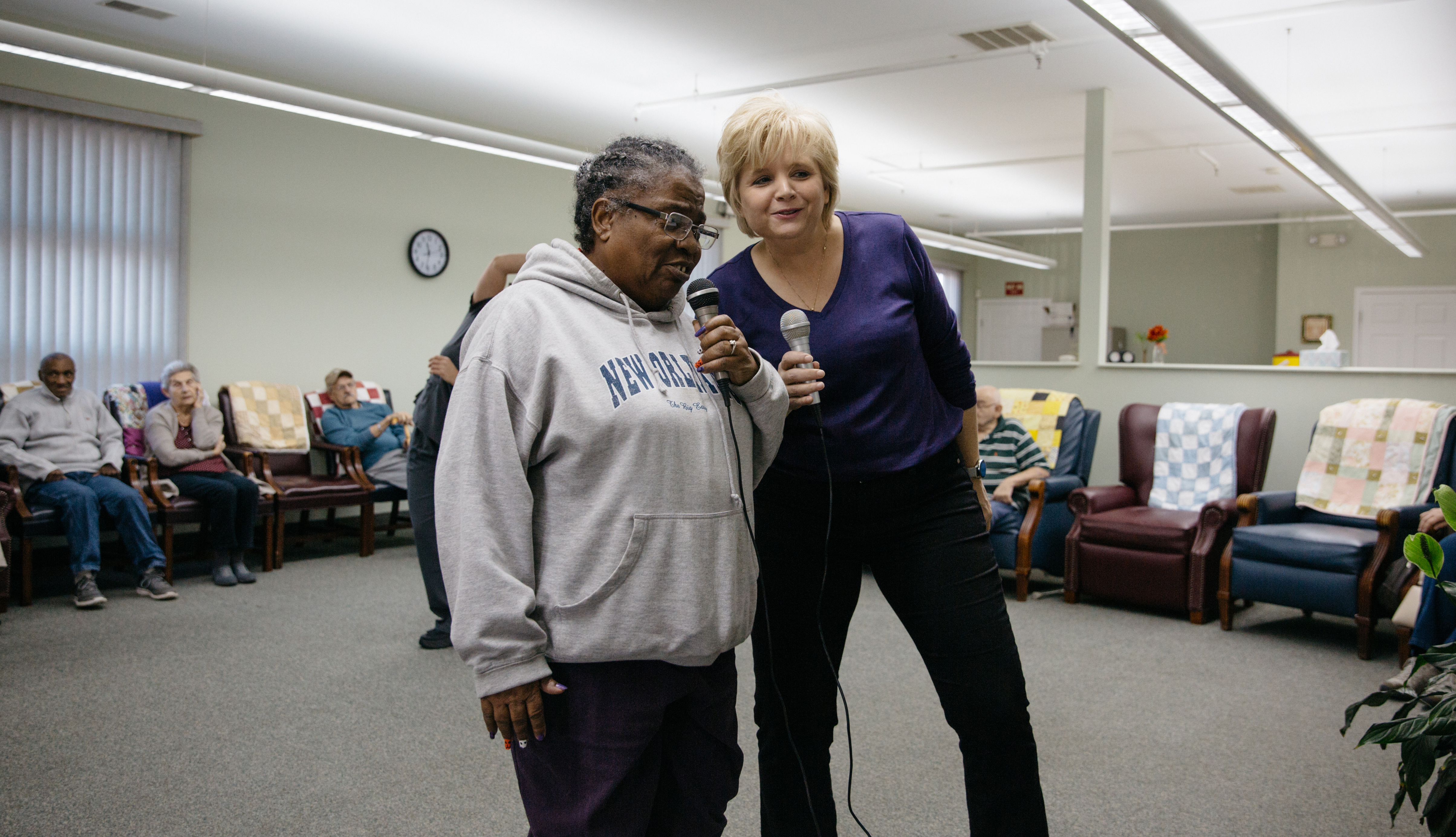AARP Hearing Center

Through her work with caregivers, Mary-Beth Fleury sees daily how money woes add to the physical and emotional burden of managing a love one’s illness.
One recent client, fatigued by her 60-mile round trip to work on top of caring for her ailing husband, looked just exhausted, recalled Fleury, 48, a program manager at the Visiting Nurses Association and Blue Water Hospice, in Port Huron.
Creating a tax credit for caregivers—a proposal AARP Michigan is urging state lawmakers to consider—would help cover the cost of respite care and other services, Fleury said.
“Many families really struggle to pay for adult day care,” she said. “When you consider other costs like medical devices and even incontinence supplies, the expenses quickly add up.”
Nationally, 41 million caregivers provide an estimated $470 billion in free care for loved ones each year, AARP research shows. They spend an average of $7,000 annual on health care equipment, building modifications and transportation to medical appointments, among other related costs.
In Michigan, caregiver tax credit to help alleviate that financial burden is among the key pieces of legislation AARP will advocate for when the Legislature returns on Jan. 8.
More than 1.3 million Michigan residents tend to loved ones at home—providing an estimated $15 billion worth of free care, according to the AARP Public Policy Institute.
AARP Michigan is building support for a caregiver bill that would ideally include a tax credit ranging from around $1,500 to $3,000, said Melissa Seifert, its associate state director for government affairs.
“We are always hyperfocused on the needs of family caregivers, and this would put a little money back into their pockets,” she said.
Tackling high drug costs
AARP Michigan is also taking action on escalating prescription drug prices, which hit older Americans—who often live on limited fixed incomes—particularly hard.
Under a proposed price-transparency bill, drugmakers would report annually to the state Department of Health and Human Services, detailing the cost of developing and manufacturing certain high-priced medications.
The disclosures would include how much of the research was supported by taxpayer-funded grants. And companies would have to list how much certain drugs cost in the United States compared with other countries.
“We don’t want to stifle research. But the taxpayer funds an awful lot of it, and that shouldn’t be counted as a manufacturing expense,” said bill sponsor Rep. Hank Vaupel (R-Fowlerville).
Nationally, AARP is urging Congress to take action on drug prices through its Stop Rx Greed campaign.
The organization supports allowing Medicare to negotiate drug prices, capping out-of-pocket costs and increasing access to cheaper generic medications.
AARP is also pushing for Michigan to join a multistate licensure agreement that would allow nurses to practice across state lines. A law giving doctors similar interstate privileges was passed last year.
Long-distance medical consultations can help with continuity of care for the thousands of Michigan residents who live elsewhere for part of the year, said bill sponsor Rep. Mary Whiteford (R-Casco Township).
Among other goals, AARP wants lawmakers to allocate an additional $6 million for in-home senior services like shopping and meal deliveries.
Read more about AARP Michigan’s 2019-20 legislative agenda at states.aarp.org/michigan/2019miagenda.
Melissa Preddy is a writer living in Plymouth.
More on Prescription Drug Prices































































